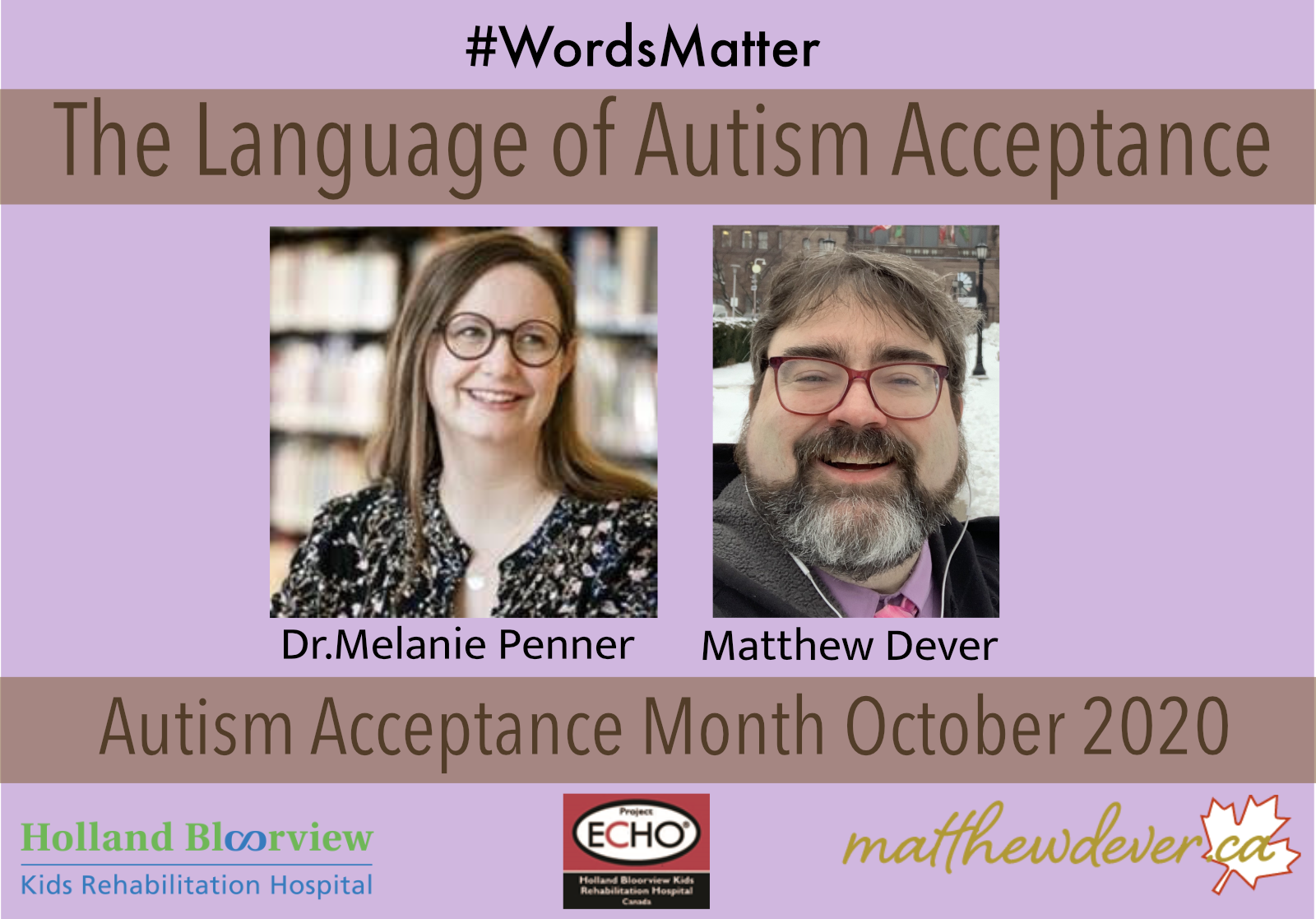Autism Acceptance and The Importance of Language

In Canada, October is the month we celebrate Autism Acceptance Month, and put a spotlight on the strengths and challenges of Autistic people of all ages. This summer I was honoured to be asked by ECHO Autism Ontario to speak about Autism Acceptance and the importance of the language we use when talking about autism and Autistic people.
ECHO Autism Ontario’s aim is to
build province-wide community capacity and ability to screen, diagnose, and manage children and youth diagnosed with autism spectrum disorder (ASD) in Ontario. It is designed for physicians and nurse practitioners (NPs) practicing in Ontario. In doing so, they hope to reduce wait times for specialized care by increasing community provider capacity, thereby reserving specialized care for complex cases.
I believe strongly in moving the language of autism away from a deficit-based “Awareness†mindset, which leads to stigma, fear and barriers. Instead, lets build a strength-based “Acceptance†model, that is mindful of the challenges that Autistics have, and the varying intensity of needs that we may have, creates an inclusive world that removes barriers and allows us to thrive.
The language we use to describe autism and Autistic people is at the heart of this change. The words we use shape the way we think about things. The way we think changes the actions we take. If we change our language, we can change attitudes.
In this discussion I had with Dr. Melanie Penner of Holland Bloorview, we talked about language, and identity, and how even a few small changes can flip how we talk about autism and Autistic people. Here are a few of the examples.
| Instead of | Use |
|---|---|
| Red flags | Possible or early signs of autism |
| Challenging behaviours | Interfering behaviours |
| Symptom | Characteristic or trait |
| Deficit | Challenge |
| Intervention | Supports |
| Special Needs | Needs |
| Severe | Extensive |
We need to start using strengths-based language right from the beginning when doctors, paediatricians, early child workers and teachers are seeing signs of autism in a child. This change in language should continue when they are referring parents to seek a possible diagnosis for their child. All through the diagnostic process this strengths-based language can help parents not see autism as something to be fearful of, but something that will enable the supports and services that will help their child grow and thrive.
If you want to see the slide deck that Dr. Penner and I presented, they are available here. If you’d like more information on Language and Autism, I will be starting a blog series called “#WordsMatter†throughout October. I’m also available to speak to any group, parents or professional that would like to talk more in depth on how we can change our language and move towards Autism Acceptance.
I told a good friend of mine recently.
“Words affect thoughts. Thoughts affect the heart. The heart leads to actions. Actions can change the world.â€Â
Let’s look at our own language, and take the time to celebrate Autism Acceptance Month!



This is a great article. I Iook forward to reading your future #WordsMatter posts this month. I definitely feel it is time for society to more towards Autism Acceptance, we need to embrace individual’s for who they are and not try to fit them into a moId that no one really fits into anyway.